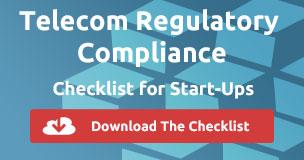 The Regulatory Mix, TMI’s daily blog of telecom related regulatory activities, is a snapshot of PUC, FCC, legislative, and occasionally court issues that our regulatory monitoring team uncovers each day. Depending on their significance, some items may be the subject of a TMI Briefing.
The Regulatory Mix, TMI’s daily blog of telecom related regulatory activities, is a snapshot of PUC, FCC, legislative, and occasionally court issues that our regulatory monitoring team uncovers each day. Depending on their significance, some items may be the subject of a TMI Briefing.
FCC Pai As New Chairman
FCC Commissioner Ajit Pai was officially designated as the 34th Chairman of the FCC. In response to the appointment, Chairman Pai issued a statement thanking the President and saying he looks forward “to working with the new Administration, my colleagues at the Commission, members of Congress, and the American public to bring the benefits of the digital age to all Americans.” Commissioners Clyburn and O’Rielly issued congratulatory statements with Commissioner Clyburn saying she is “hopeful that we can come together to serve the public interest by supporting competition, public safety, and consumer protection” and Commissioner O’Rielly saying he looks forward to “working with him and his team to tackle the challenges and capitalize on the opportunities that will present themselves.”
US House of Representatives Telecom Legislation
The House passed seven Energy and Commerce Committee bills relating to telecommunications, as follows:
- H.R. 290, Federal Communications Commission Process Reform Act of 2017, would make the FCC more efficient, transparent, and accountable through reforming the commission’s processes and ensuring the FCC regulates in an innovative and dynamic way.
- H.R. 423, Anti-Spoofing Act of 2017, would protect consumers against fraudulent actors and deceptive text messages by updating the Truth in Caller ID Act of 2009, which prohibits entities from transmitting misleading or inaccurate caller ID information.
- H.R 460, Improving Rural Call Quality and Reliability Act of 2017, would require intermediate providers to register with the FCC and comply with the service quality standards set by the agency in order to improve call quality from long distance or wireless calls in rural areas throughout the country.
- H.R. 555, Amateur Radio Parity Act of 2017, would instruct the FCC to adopt rules that protect the rights of amateur radio operators to use radio equipment in deed-restricted communities.
- H.R. 582, Kari’s Law Act of 2017, would require that any multi-line telephone system connects directly to 911 when dialed, even in instances where the phone requires the user to dial “9” to get an outside line.
- H.R. 588, Securing Access to Networks in Disaster Act, would create requirements for mobile service providers during emergencies to ensure that consumers have access to networks during disasters, and requires the FCC and GAO to examine the resiliency of networks during these events. In addition, it amends the Stafford Act to ensure all categories of communications service providers may access disaster sites to restore service.
- H.R. 599, Federal Communications Commission Consolidated Reporting Act of 2017, would consolidate eight separate reports at the FCC into a single, comprehensive overview of the communications marketplace, reducing reporting burdens and encouraging the agency to analyze competition in the marketplace.
- H.R. 511, Power and Security Systems (PASS) Act, would provide an exemption from energy use restrictions for equipment that needs to be on at all times, such as security or fire alarms. H.R. 511 passed the House unanimously by voice vote.
Four energy bills were also passed, H.R. 518, EPS Improvement Act of 2017, H.R. 587, Fair RATES Act, and H.R. 590, Advanced Nuclear Technology Development Act of 2017.
US Senate Telecom Legislation
The U.S. Senate Committee on Commerce, Science, and Transportation will hold an executive session on Tuesday, January 24th at 10:15 a.m. to, among other things, consider the following telecom-related legislative measures:
- S. 19, MOBILE Now Act;
- S. 88, Developing Innovation and Growing the Internet of Things (DIGIT) Act;
- S. 96, Improving Rural Call Quality and Reliability Act;
- S. 102, Securing Access to Networks in Disasters (SANDY) Act;
- S. 123, Kari’s Law Act;
- S. 134, Spoofing Prevention Act; and
- S.174, Federal Communications Commission Consolidated Reporting Act.





